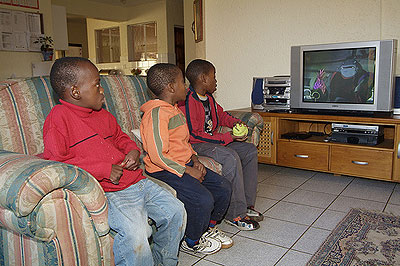Public discussions of private family welfare issues, particularly those involving children, have increasingly become common on radio and television in Ghana. Such practices compromise the confidentiality, dignity, and rights of the affected individuals, and undermine the legal frameworks established to safeguard family and child welfare.
The Children’s Act, 1998 (Act 560), clearly outlines the responsibilities of the Department of Social Welfare about child-related issues. According to the Act, the Department is mandated to protect and promote the welfare of children, addressing matters related to parentage, custody, access, and maintenance. Section 19 explicitly empowers the Department to investigate situations where children’s rights are violated and to provide necessary support and protection. This ensures the professional handling of sensitive matters, prioritizing the best interests and privacy of children. With offices established in all District Assemblies across Ghana, the Department routinely manages these cases confidentially, achieving meaningful resolutions that are not subject to public scrutiny. Consequently, the public may underestimate the critical impact and volume of the Department’s interventions in protecting children and families.
Family Tribunals, established under Section 33 of the Children’s Act, complement the Department’s efforts by adjudicating cases involving parentage, custody, access, and maintenance. These tribunals consist of a magistrate and appointed members, including social welfare officers, to ensure that a comprehensive understanding of child welfare informs their decisions. Tribunal proceedings are held privately (in camera) to protect identities and maintain confidentiality, thus preserving the dignity of families and minimizing emotional harm.
Additionally, Section 39 of the Children’s Act explicitly prohibits publishing any information that could lead to the identification of children involved in legal proceedings without the permission of the tribunal. Violating this provision is an offense punishable by fines or imprisonment.
Discussing private family issues on public platforms, including radio and television, has numerous detrimental effects on the individuals involved, particularly children. Such public exposure can lead to stigma, embarrassment, and psychological trauma, adversely impacting children’s mental health and overall development. Furthermore, publicly airing these sensitive matters can significantly strain family relationships, eroding trust and complicating potential amicable resolutions.
An alarming trend has emerged where marital conflicts broadcast on radio or streamed on social media escalate tensions, sometimes leading directly to divorce. There have been documented instances on social media where individuals publicly threaten divorce due to family issues aired openly, exacerbating the conflict rather than resolving it. Additionally, media outlets involved rarely conduct follow-up activities, leaving affected individuals and families without appropriate closure or support.
While media platforms are influential in disseminating important societal information, publicly discussing private family welfare issues is both inappropriate and harmful. Issues concerning parentage, custody, access, and child maintenance should instead be managed through designated legal avenues such as the Department of Social Welfare, Family Tribunals, and the Domestic Violence and Victims Support Unit (DOVVSU) of the Ghana Police Service. These institutions are professionally equipped to ensure the protection, confidentiality, and welfare of all parties involved, particularly vulnerable children.
Written by SAMUEL ENYO ANAGLATE (THE HEAD, FOSTER CARE SERVICES UNIT. DEPARTMENT OF SOCIAL WELFARE.

